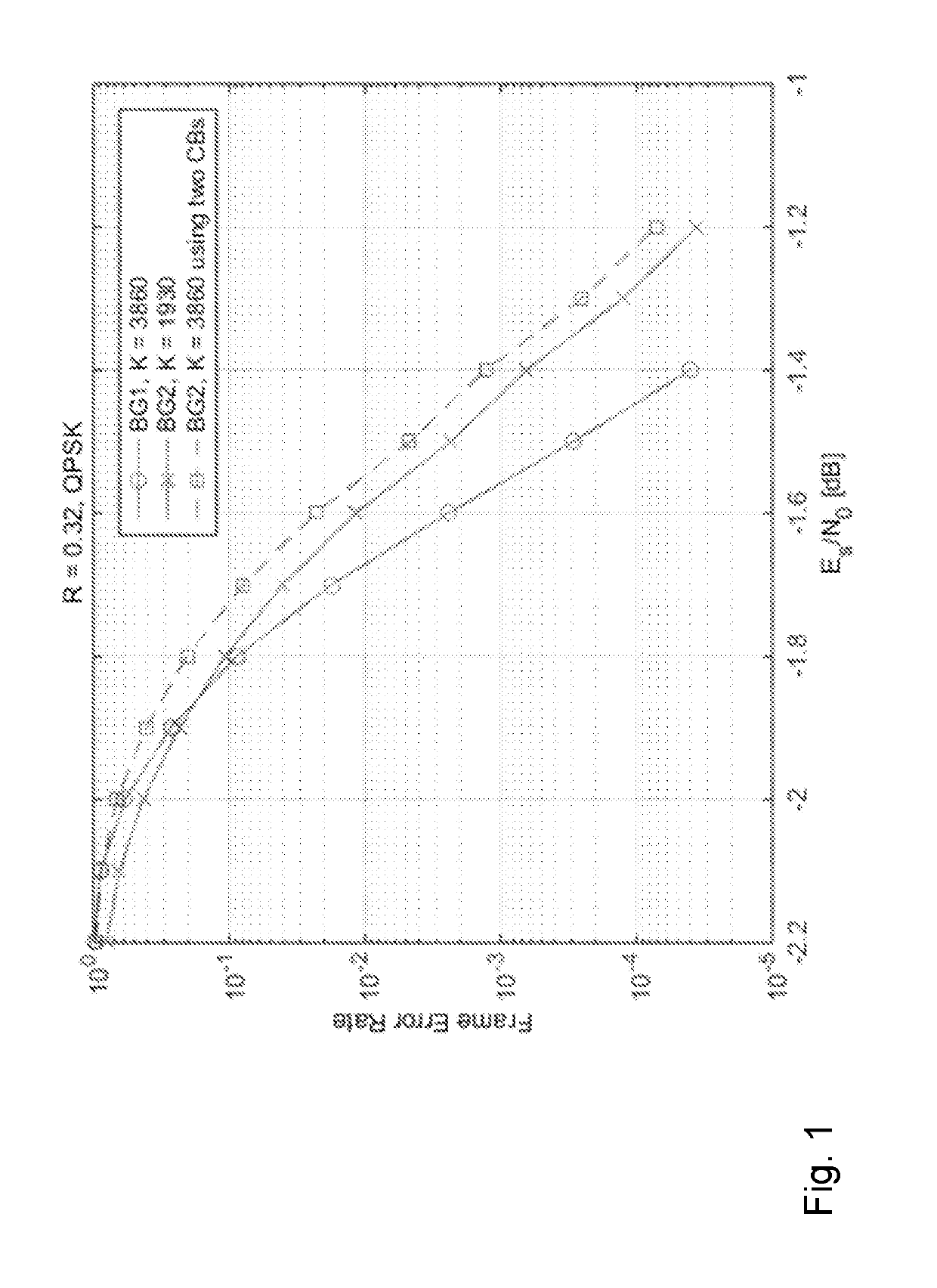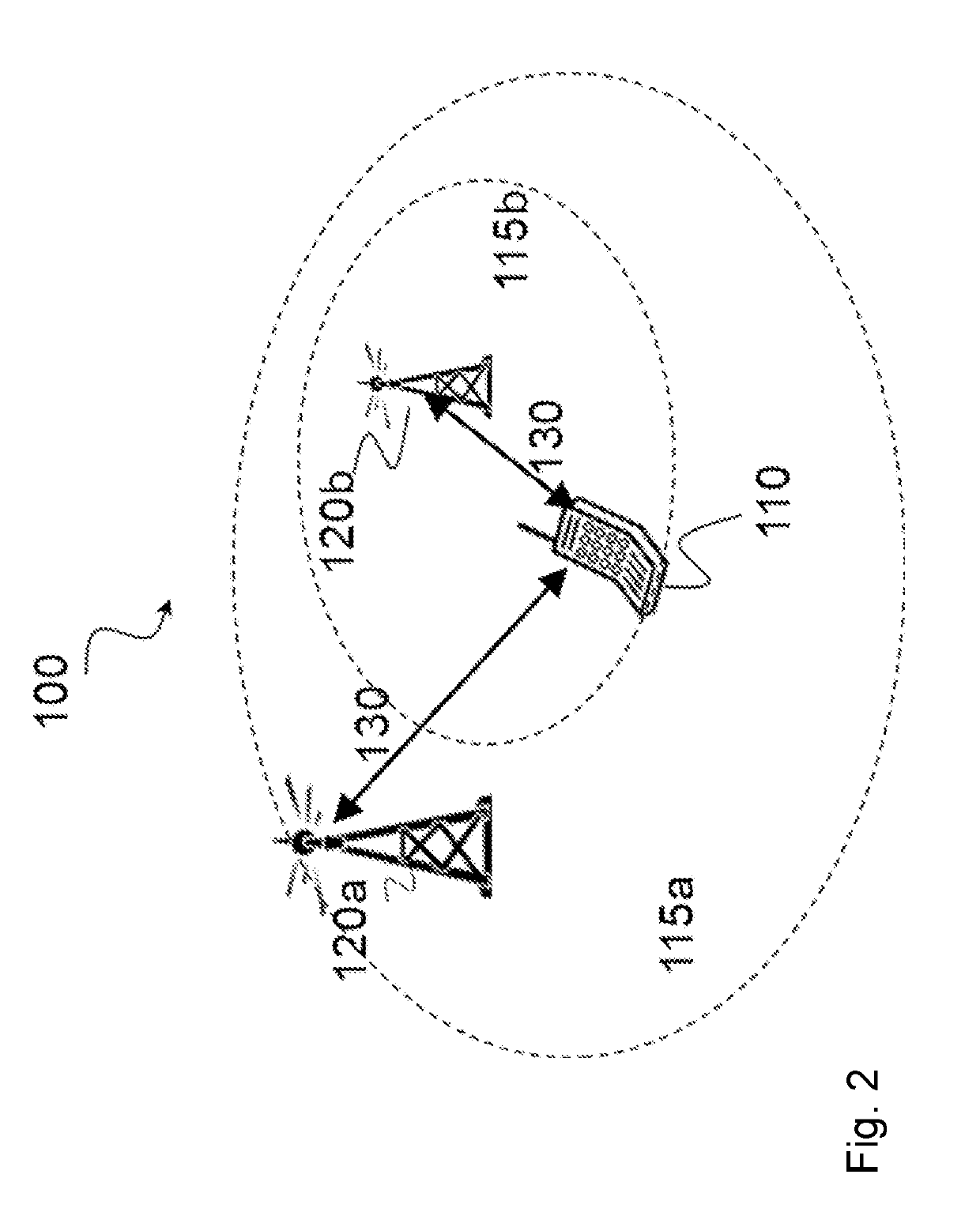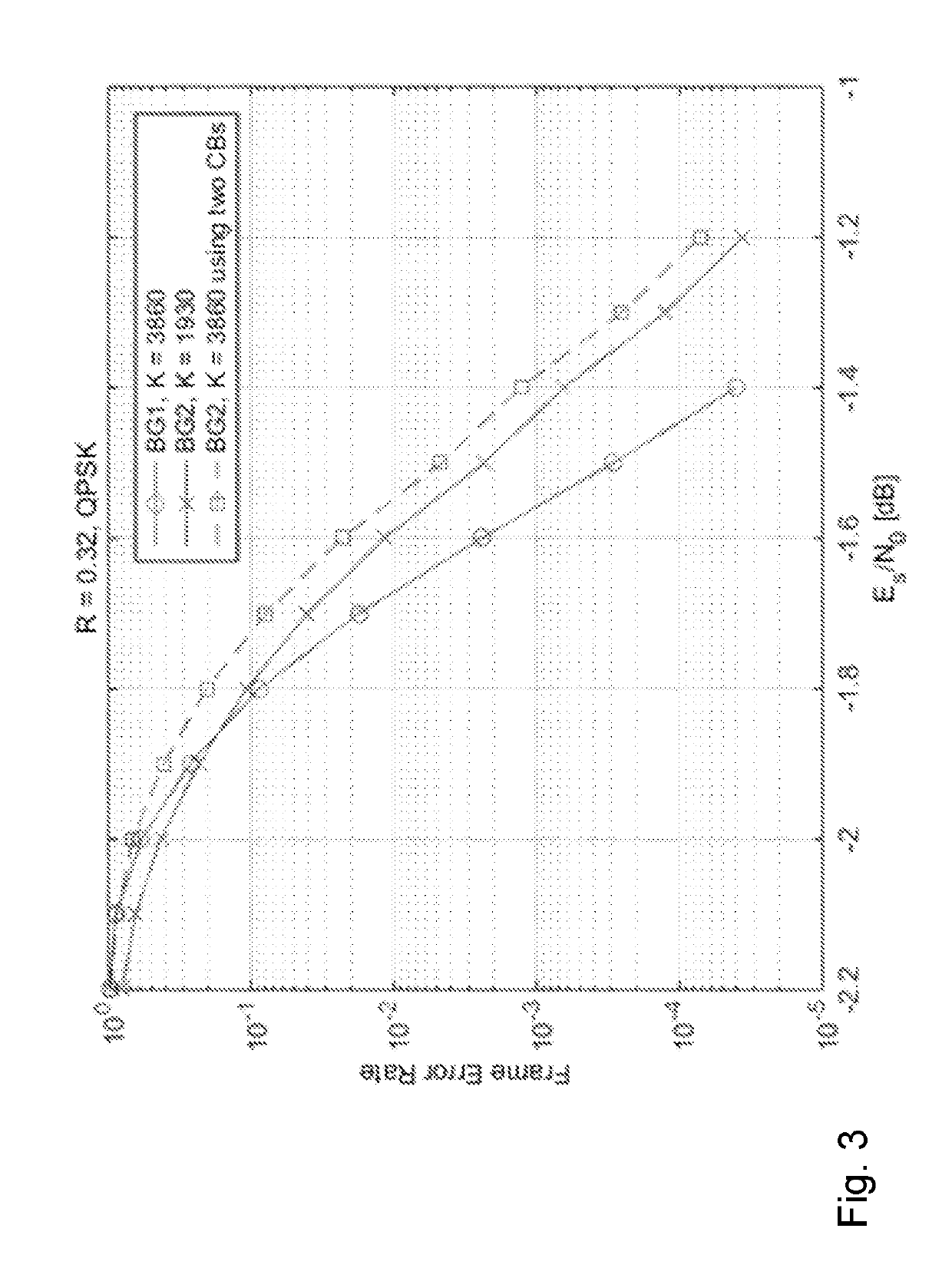Code block segmentation for new radio
a new radio and code block technology, applied in the field of wireless communication, can solve problems such as poor performance, and achieve the effects of shortening the length of the code block, and reducing the cost of coding
- Summary
- Abstract
- Description
- Claims
- Application Information
AI Technical Summary
Benefits of technology
Problems solved by technology
Method used
Image
Examples
Embodiment Construction
[0037]Third Generation Partnership Project (3GPP) defines a fifth generation (5G) of wireless communication that includes new radio (NR). NR uses two sets of low-density parity check (LDPC) codes. One LDPC code is designed for code rates from ˜ 8 / 9 to ⅓ and block lengths up to 8448 (base graph #1, also referred to as BG#1 or BG1). The other LDPC code is designed for code rates from ˜⅔ to ⅕ and block lengths up to 3840 (base graph #2, also referred to as BG#2 or BG2). When the LDPC codes are used with lower rates than they are designed for, repetition and chase combining may be used to achieve a lower code rate.
[0038]One proposal under discussion in 3GPP is for code rate R2 is used because of its lower design code rate and the maximum code block size is thereby Kcb=3840. For transport block size (TBS) larger than Kcb, the number of code blocks is determined by segmenting the transport block into code blocks no larger than Kcb=3840.
[0039]A problem with the proposal is that BG2 is sele...
PUM
 Login to View More
Login to View More Abstract
Description
Claims
Application Information
 Login to View More
Login to View More - R&D
- Intellectual Property
- Life Sciences
- Materials
- Tech Scout
- Unparalleled Data Quality
- Higher Quality Content
- 60% Fewer Hallucinations
Browse by: Latest US Patents, China's latest patents, Technical Efficacy Thesaurus, Application Domain, Technology Topic, Popular Technical Reports.
© 2025 PatSnap. All rights reserved.Legal|Privacy policy|Modern Slavery Act Transparency Statement|Sitemap|About US| Contact US: help@patsnap.com



